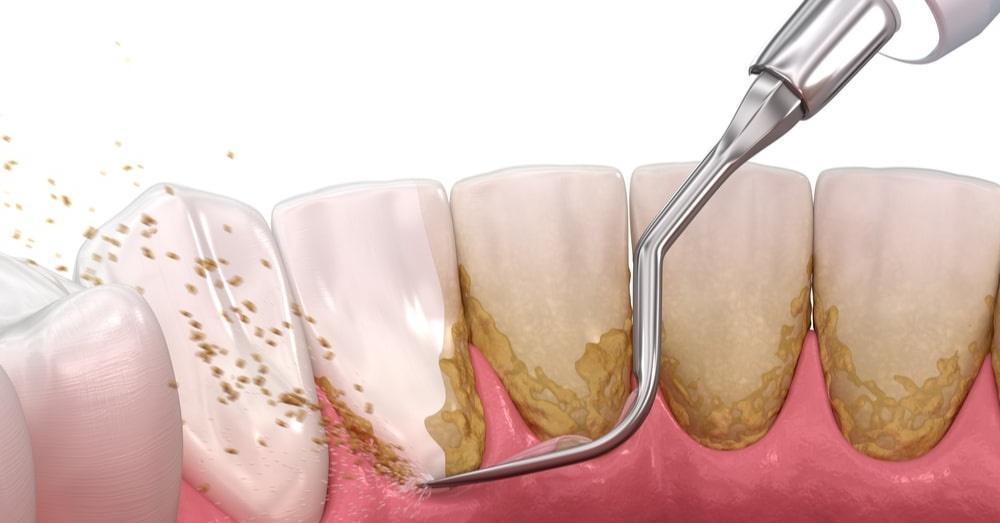Are you curious to know what is periodontal cleaning? You have come to the right place as I am going to tell you everything about periodontal cleaning in a very simple explanation. Without further discussion let’s begin to know what is periodontal cleaning?
Maintaining good oral health is not just about having a bright smile; it’s also crucial for overall well-being. One essential aspect of oral care that often goes beyond regular dental cleanings is periodontal cleaning. In this blog, we’ll explore what periodontal cleaning is, its importance, and why it plays a vital role in preserving healthy gums and teeth.
What Is Periodontal Cleaning?
Periodontal cleaning, often referred to as deep cleaning or scaling and root planing, is a dental procedure specifically aimed at treating gum disease, also known as periodontal disease. It goes beyond the routine cleaning you receive during regular dental check-ups, which primarily focuses on removing plaque and tartar from the visible surfaces of your teeth.
The Purpose Of Periodontal Cleaning:
Periodontal cleaning serves several crucial purposes:
- Gum Disease Treatment: It is the primary treatment for gum disease, targeting the source of the problem, which lies below the gumline.
- Plaque and Tartar Removal: It removes accumulated plaque and tartar not only from the tooth surfaces but also from the tooth roots, where it can lead to gum inflammation and infection.
- Smoothing the Tooth Roots: Root planing involves smoothing the tooth roots to remove rough areas where bacteria can easily attach and form new plaque.
- Gum Health Restoration: Periodontal cleaning aims to restore gum health by eliminating infection and inflammation.
The Periodontal Cleaning Process:
Periodontal cleaning is typically performed in a dental office and involves the following steps:
- Evaluation: Your dentist will assess the extent of your gum disease, which may involve measuring the depth of gum pockets around your teeth and taking X-rays to determine the severity of bone loss.
- Anesthesia: In many cases, local anesthesia is administered to ensure you are comfortable during the procedure.
- Scaling: The dental professional uses specialized instruments to remove plaque and tartar from both the tooth surfaces and the tooth roots. This process eliminates the source of infection.
- Root Planing: The tooth roots are smoothed to prevent future plaque and tartar buildup and to promote the reattachment of gum tissue to the teeth.
- Follow-up Care: After the procedure, your dentist may prescribe antibiotics to control infection and recommend additional dental visits to monitor your gum health.
The Importance Of Periodontal Cleaning:
Periodontal disease, if left untreated, can have serious consequences for your oral health and overall well-being. Here’s why periodontal cleaning is essential:
- Prevention: It helps prevent the progression of gum disease, which can lead to tooth loss and other dental complications.
- Oral Health: Healthy gums are the foundation of good oral health. Periodontal cleaning ensures your gums are in their best condition.
- Systemic Health: Emerging research suggests a connection between gum disease and systemic health issues, such as heart disease, diabetes, and respiratory problems. Treating gum disease through periodontal cleaning can have a positive impact on your overall health.
- Preservation of Teeth: By addressing gum disease early, periodontal cleaning helps preserve your natural teeth and reduces the need for more invasive dental procedures.
Conclusion:
Periodontal cleaning is an integral part of maintaining optimal oral health. Whether you’ve been diagnosed with gum disease or want to take preventive measures, regular dental visits that include periodontal cleaning can help ensure your gums and teeth stay healthy and functional for years to come. Remember, a healthy smile starts with healthy gums.
Get Information About Advantages On Mainadvantages.
FAQ
What Is Done During A Periodontal Cleaning?
Unlike a normal, preventative cleaning, periodontal maintenance is a treatment prescribed to combat periodontal disease. It involves both scaling and root planing, meaning tartar must be removed from deep between the teeth and gums.
Is Periodontal Cleaning Painful?
Will a Deep Cleaning Hurt? You may experience some discomfort during the procedure, but we’ll use anesthesia to minimize pain. After the procedure, you may experience some sensitivity or soreness, but this should subside within a few days.
Is Periodontal Cleaning The Same As Deep Cleaning?
Essentially, periodontal cleaning is synonymous with deep cleaning. While a regular cleaning procedure removes tartar and buildup from the surfaces of the teeth, a deep cleaning is done below the gumline. This is why it’s also referred to as a periodontal cleaning.
How Often Should You Have Periodontal Cleaning?
Once your periodontal treatment has been completed, your dentist and dental hygienist will recommend that you have regular maintenance cleanings (periodontal cleanings), usually four times a year. At these cleaning appointments, the pocket depths will be carefully checked to ensure that they are healthy.
I Have Covered All The Following Queries And Topics In The Above Article
What Is A Periodontal Cleaning
What Is A Periodontal Maintenance Cleaning
What Is Periodontal Maintenance Vs Regular Cleaning
Is Periodontal Cleaning Covered By Insurance
Periodontal Maintenance After Deep Cleaning
Do I Need Periodontal Maintenance Forever
Periodontal Maintenance Guidelines
Periodontal Cleaning Procedure
Teeth Scaling Vs Cleaning
Is Periodontal Maintenance A Deep Cleaning
What Is Periodontal Cleaning
Is periodontal cleaning painful
